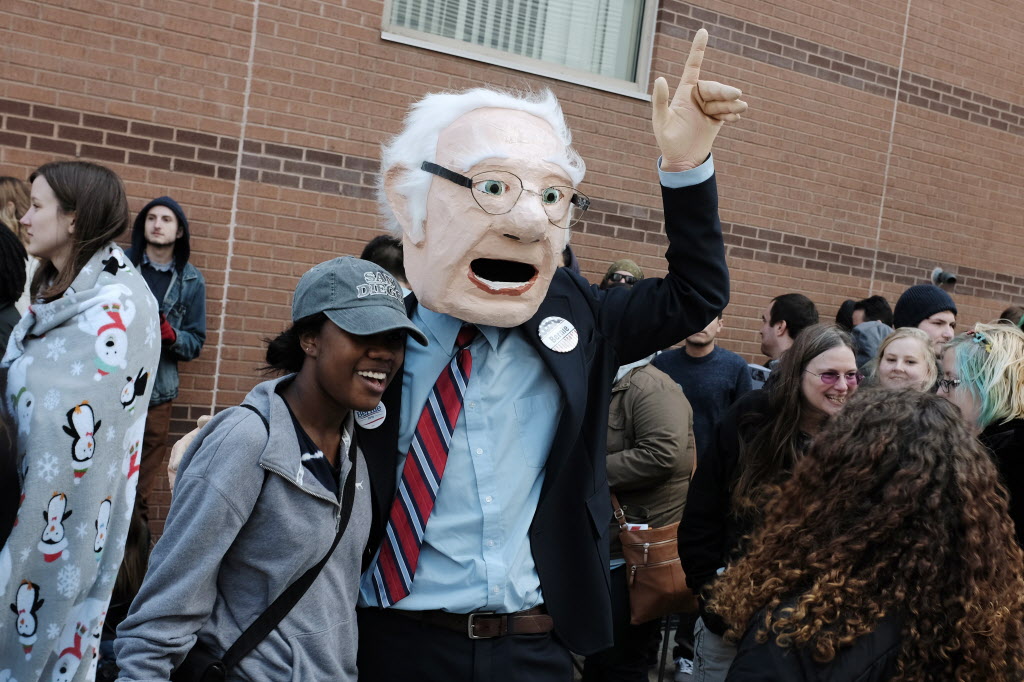![Cruz, Sanders Victorious in Wisconsin [video : 82691640]](http://videos.usatoday.net/Brightcove2/29906170001/2016/04/29906170001_4833525956001_thumb-7131e37f91614711950f6a7067001731.jpg?pubId=29906170001)
In the era of presidential primaries, most candidates have stuck to a fairly simple strategy — consolidate support within the party, then move to the center for the general election.
This year has been different. Texas politician Jim Hightower once wrote a book called There’s Nothing in the Middle of the Road But Yellow Stripes and Dead Armadillos. Three of the five surviving candidates are taking pages from it.
![editorial040616 [interactivepoll : 82714414]](/Portals/_default/Skins/PrestoLegacy/CommonCss/images/interactive.jpg)
Donald Trump certainly appears to be. The Republican front-runner’s extreme campaign of provocations, ultimatums and insults continues unaltered. And, to an even greater degree, so are the winners of Tuesday’s Wisconsin primaries, Ted Cruz and Bernie Sanders.
Badger State voters might have done a public service in slowing Trump’s march to the Republican nomination. But they also raised troubling questions by embracing candidates so different from each other politically yet so alike in their refusal to bend.
To anyone who believes that a key to America’s success is a vibrant political middle eager to bridge differences, the successes of Cruz, a Tea Party GOP senator from Texas, and Sanders, an independent senator from Vermont, are deeply worrying.
![The state that yelled, ‘Stop!’: Other views [oembed : 82727840] [oembed : 82727840] [oembed : 82727840] [oembed : 82727840]](/Portals/_default/Skins/PrestoLegacy/CommonCss/images/smartembed.png)
Both are true believers, seemingly incapable of taking positions burdened by nuance, complexity or compromise. Both scorn appeals to centrism. And both are absolutely convinced that general election voters secretly harbor hopes for a far-right or far-left presidency.
Cruz is perhaps best known as the architect of the 2013 government shutdown. He has also advocated allowing the Treasury to default on the national debt if Republican demands were not met. These destructive moves failed as political tactics and caused harm to the economy. But to Cruz, they were a chance to prove just how unyielding he could be, no matter the collateral damage.
Sanders is known for his almost messianic belief that his election would make the fiscally or politically impossible suddenly possible. He'd increase spending on benefits that are already pushing the nation toward a serious debt crisis. And he'd remake the entire American health care system at a time when many voters don’t even like the incrementalist approach of Obamacare.
The biggest difference between Cruz and Sanders is their political situations. While Sanders has won a string of impressive victories lately, he still lags Hillary Clinton in the Democratic delegate count, with few states left that play to his strengths. It's hard to see his path to the nomination.
Cruz also trails in delegates, but he might well be the Republican nominee if there's a contested convention this summer. To a Republican Party in disarray and desperate to stop Trump, he is is looking better and better. He may not be an ideal candidate, but he'd be less of a drag on down-ballot Republicans than Trump would be, or so the argument goes.
Regardless of the eventual fates of Cruz and Sanders, the fact that their inflexibility is getting so much traction is hardly a good sign. The signal they send to politicians of both parties up and down the ballot is: Centrism is for wimps; stick to your guns, don’t compromise, and count on support from fellow true believers to propel you into office.
In an era of crippling polarization, when even simple matters are being ignored by Congress, that message is unlikely to make things better, and could make them much worse.
USA TODAY's editorial opinions are decided by its Editorial Board, separate from the news staff. Most editorials are coupled with an opposing view — a unique USA TODAY feature.
To read more editorials, go to the Opinion front page or sign up for the daily Opinion e-mail newsletter.


![ourview040606 [image : 82725498]](http://www.gannett-cdn.com/media/2016/04/06/USATODAY/USATODAY/635955658626633626-OURVIEW.JPG)
